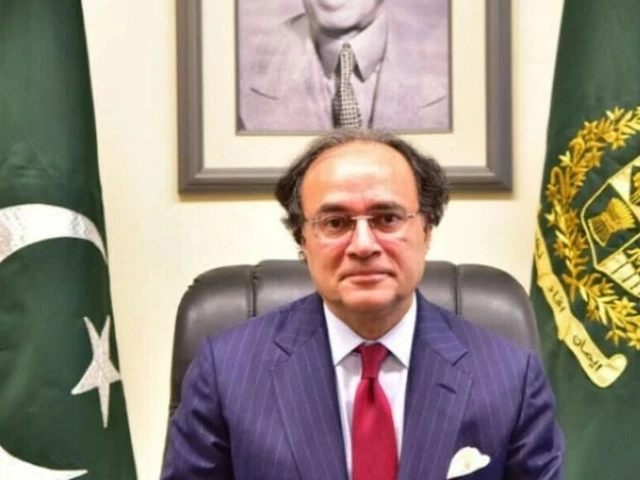Ensuring that Pakistan’s commitments will be maintained with the International Monetary Fund, Finance Minister Muhammad Aurengzeb, said the government will not impose any additional tax to cover the income deficit.
Speaking to journalists in Islamabad on Wednesday, Aurengzeb emphasized that Pakistan is still committed to increase their glow -to 11 percent relationship during the current fiscal year, in line with the objectives of the IMF.
He said that the ongoing litigation on tax disputes in court represents a potential source of income once resolved, which would help reduce the tax gap.
“The income deficit will not be fulfilled through new taxes,” said the minister, added that progress with the IMF has been constructive and discussions remain positive.
Aurengzeb reiterated that the Government is determined to achieve the agreed target of GDP taxes and expressed its confidence that the reforms, together with the resolution of disputes, will stabilize the income flows.
FBR will focus on tax collection
Previously, Aurengzeb told the Senate Committee on Finance that the next federal budget will not be prepared by the FBR, but by a fiscal policy board recently established under the Ministry of Finance.
The minister said that the new Board will focus on policy formulation, while the FBR will restrict tax collection.
He added that macroeconomic stability is beginning to be reflected in Pakistan’s financial indicators, citing the recent reimbursement of a $ 500 million Eurobond and plans to issue a panda bonus at the end of November.
Aurengzeb emphasized that the Fiscal Policy Board will work throughout the year to participate in continuous budgetary consultations, unlike the past practice of hasty deliberations only weeks before the presentation of the budget.
An Advisory Board that includes experts and representatives of the private sector will also be established, although its recommendations will not be binding.
Senators criticize FBR practices
During the session, the members of the Committee raised concerns about the behavior of the FBR. A senator criticized his hard hand approach to merchants, commenting: “Tax collection is not done with a kalashnikov. Treats merchants as merchants, not as taliban or terrorists.”
A lawyer who represents a harmed citizen alleged that the FBR had violated the presidential directives by challenging federal decisions of the Ombudsman in the Court. He argued that, according to the 2013 Ombudsman Reform Law, ministries and divisions are obliged to implement presidential orders.
However, the Attorney General argued that the matters of classification of property are outside the jurisdiction of the Federal Tax Ombudsman and must be treated by the relevant classification committees.
Senator AFNAN accused FBR of politically motivated cases against him, claiming that the authority had previously presented false charges that he successfully challenged.
The member of the internal income operations, Hamid Ateeq Sarwar, advised the senator to seek appeals through adequate legal channels, ensuring that the decisions of the appeal forums are respected.
Other issues discussed
The minister also addressed questions about the Virtual Assets bill, confirming that the Ministry of Finance had received 16 committee consultations and would answer in detail. He said the bill should promote economic growth instead of creating fear.
Senator Dilawar, a tobacco producer, complained that, despite a bumper harvest this year, buyers were not willing to buy tobacco even at RS300 per kilogram. Aurengzeb replied that irregularities in sectors such as tobacco, drinks and sugar should be approached transparently.
The members of the Committee welcomed the separation of FBR’s fiscal policy, qualifying it as a reform for a long time. They urged the government to ensure that the new Board remains active and effective in the formulation of policies.




